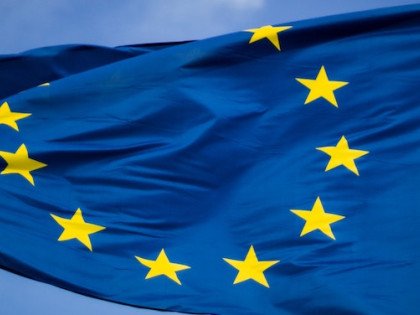The CPME is composed of 28 members. It is an organisation representing medical doctors from countries of the European Union. It receives its core funding from membership fees. The UK’s member is the British Medical Association (BMA), and organisation that still advises caution over vaping and supports pharmacotherapy as the primary method of quitting smoking.
The precautionary principle advocates that "an ounce of prevention is worth a pound of cure". When applied to vaping, organisations and individuals frequently forget about the consequences of not encouraging vaping.
“These products are often promoted,” it writes, “as conventional smoking cessation aids.
However, there is limited evidence on the impact of their use on conventional smoking or on the relative harm of their use as compared to conventional cigarette smoking.”
“The product design, flavours, marketing, and perception of safety and acceptability have increased the appeal of new products particularly to young people”.
The CPME ignore actual evidence and cling to the position taken by the World Health Organisation, saying that only “some of them [vaping products] have lower emissions than conventional cigarettes”.
Worse, it relies on fraudulent studies that make the claim: “the levels of toxicants vary enormously depending on the brand and model, and can sometimes reach higher levels than in tobacco smoke.”
Nonsensically, the CPME states that danger from second-hand aerosols exists, “and may affect [bystanders] health adversely”.
Supporting flawed studies, ignoring genuine science and waving a flag for ignorance, the CPME goes on to suggest: “The scientific evidence regarding the effectiveness of electronic cigarettes as a smoking cessation aid is limited, making it difficult to draw credible conclusions. Smokers and ex-smokers who have tried or used e-cigarettes most often say their tobacco smoking did not reduce as a result of using ecigarettes. Due to this lack of supporting evidence, e-cigarettes are not licensed and should not be promoted as smoking cessation aids. Doctors should support the use of approved, evidence-based aids to smoking cessation.”
It’s a ludicrous stance to take that promotes the status quo that has failed smokers for decades and consigns them to continued exposure to tobacco related harm rather than encouraging them to a less harmful alternative.
Its list of recommendations beggars belief; the CPME calls on policy makers to:
- recognise that novel tobacco and nicotine products are harmful
- prohibit health claims for electronic cigarettes and heated tobacco products, including claims relating to their effectiveness as smoking cessation aids
- prohibit use of novel tobacco and nicotine products where smoking is banned
- prohibit cross-border advertising, promotion and sponsorship of e-cigarettes and heated tobacco products, and especially their marketing to children and non-smokers
- prohibit sale of e-cigarettes and heated tobacco products to minors and to eliminate vending machines for them
- ban flavourings in electronic nicotine delivery products and heated tobacco products
- support and encourage independent scientific research regarding the health risks and long-term effects of e-cigarettes and heated tobacco products
- ensure that the cost of novel tobacco and nicotine products is maintained at a high level similar to the cost of conventional cigarettes
- harmonise costs of novel tobacco and nicotine products between the EU member states
- establish an EU minimum excise duty rate for e-cigarettes and heated tobacco products
- continue to try to prevent young people starting smoking conventional cigarettes and novel products
- continue to try to reduce overall tobacco use by encouraging people to quit and supporting
- those who are trying to reduce or stop their use of tobacco and nicotine containing products
It is calling on European doctors to “inform their patients about the health risks associated with e-cigarettes and heated tobacco products”. Some may wonder what these risks are? It wants governments and local authorities “to reduce accessibility” to vape products – something that ought to be a criminal offence.
Finally, it is instructing doctors to “not recommend” heat-not-burn or vape products as means to stop or reduce smoking.
How do these people sleep at night?
Related:
- CPME Policy on Novel Tobacco and Nicotine Products – [link]
- BMA position statement on vaping – [link]
Dave Cross
Journalist at POTVDave is a freelance writer; with articles on music, motorbikes, football, pop-science, vaping and tobacco harm reduction in Sounds, Melody Maker, UBG, AWoL, Bike, When Saturday Comes, Vape News Magazine, and syndicated across the Johnston Press group. He was published in an anthology of “Greatest Football Writing”, but still believes this was a mistake. Dave contributes sketches to comedy shows and used to co-host a radio sketch show. He’s worked with numerous start-ups to develop content for their websites.
Join the discussion
EU Commission Called Out
The World Vapers' Alliance calls out the EU Commission's hostile stance on Tobacco Harm Reduction in light of Tobacco Product Directive consultation findings
WHO HIGHLIGHTS SWEDISH SUCCESS
A major new report from the World Health Organization (WHO) highlights Sweden’s success in going smoke-free with the help of less harmful cigarette alternatives
MEPs Want Integrated EU Strategy
MEPs propose actions to prevent and lower the prevalence of non-communicable diseases in the EU, in order to reduce the burden on healthcare systems and on citizens’ quality of life
Report Raises Concerns About EU Transparency
A recent report raises concerns about the EU’s approach to transparency and inclusivity as member states challenge the Commission's stance on tobacco control






-listing400.jpg)




